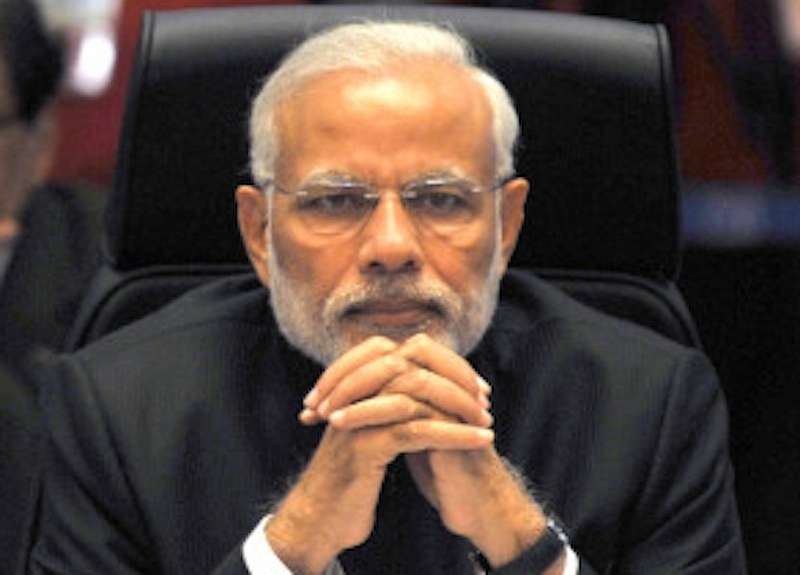Business
SC Blackballs HZL, Balco Share Sale: It Means Reform By Stealth Is No Longer A Viable Option

Will the Modi government now get bolder and talk privatisation and legislation? Or, will it give in and accept that socialist ideology is what works in populist politics?
The Supreme Court’s clear rejection of any bid to sell the minority government stake in Hindustan Zinc and Balco to their private sector promoter implies that disinvestment by stealth is no longer an option. Legislation is the only route.
At hearings on Tuesday (19 January), a bench headed by Chief Justice TS Thakur scolded the government for its apparent haste in trying to sell the rump stake in these two companies to raise revenues in a difficult year. Business Standard quotes the bench as saying:
“What is the compulsion to divest now? Why are you in a hurry? You have already committed a violation when you divested in 2002 and this does not mean we will allow you to sell the remainder of the stake without changing the law (Metal Corporation (Nationalisation and Miscellaneous Provisions) Act, 1976).”
The petitioner opposing the government’s move is the National Confederation of Officers’ Associations, and the court clearly pointed out the illogic in trying to sell shares in a company that was nationalised through an act of parliament. Shares could not be divested without changing the Act itself. This means legislation to reverse nationalisation or privatisation is unavoidable.
While the immediate impact of the court’s decision is restricted to HZL and Balco, the court’s injunctions have a wider implication. Logically, if selling an asset taken over by a law is wrong, divesting even minority stakes in nationalised undertakings can be considered a breach of the law which took over 100 percent of the shares in a private enterprise. Divestment in bits and pieces can also be challenged since the law does not specifically allow for the re-induction of private investors in 100 percent public sector companies.
It is this grey area – whether selling upto 49 percent in a nationalised company is tantamount to partial privatisation – that allowed the government to sell minority stakes in nationalised banks, Coal India and ONGC.
It is also worth recalling that two oil companies – Bharat Petroleum and Hindustan Petroleum – were to have been privatised by Arun Shourie in the earlier NDA government without changing the law. However, political opposition from the then Petroleum Minister (Ram Naik, at that time) and support for his position from George Fernandes and other Socialists, killed the idea. That the Attorney General too did not see much legality in the route chosen for privatisation sealed the fate of that attempt to get around the law.
What this means is that sooner or later, the NDA government under Narendra Modi has to take the bull by the horns and utter the “P’ word – privatisation. It may not be politically easy to negotiate, but if this supposedly right-of-centre government cannot even mention the ‘P’ word and start thinking denationalisation through legislation, it might as well re-nationalise currently undervalued public sector companies and be done with it.
The market value of the entire public sector banking industry, including State Bank, is not more than that of any two of the top private banks – HDFC Bank plus ICICI Bank – which adds up to nearly Rs 3,90,000 crore. SBI’s current valuation is Rs 1,36,000 crore, or thereabouts.
Given the mood the Supreme Court is in, it is unlikely that sales of public sector equity at throwaway prices will do the government any good in terms of public optics. India’s nationalised banks cannot begin the process of lending without recapitalisation, but seeking additional funds at current valuations is unfair to the taxpayer, who is the ultimate owner of these assets. Banks cannot be rescued without privatisation.
The Modi government thus has two options: get bolder and talk privatisation and legislation, at least in the matter of public sector companies. Or accept that socialist ideology is what works in populist politics.
Reform by stealth is increasing unviable.
Introducing ElectionsHQ + 50 Ground Reports Project
The 2024 elections might seem easy to guess, but there are some important questions that shouldn't be missed.
Do freebies still sway voters? Do people prioritise infrastructure when voting? How will Punjab vote?
The answers to these questions provide great insights into where we, as a country, are headed in the years to come.
Swarajya is starting a project with an aim to do 50 solid ground stories and a smart commentary service on WhatsApp, a one-of-a-kind. We'd love your support during this election season.
Click below to contribute.
Latest